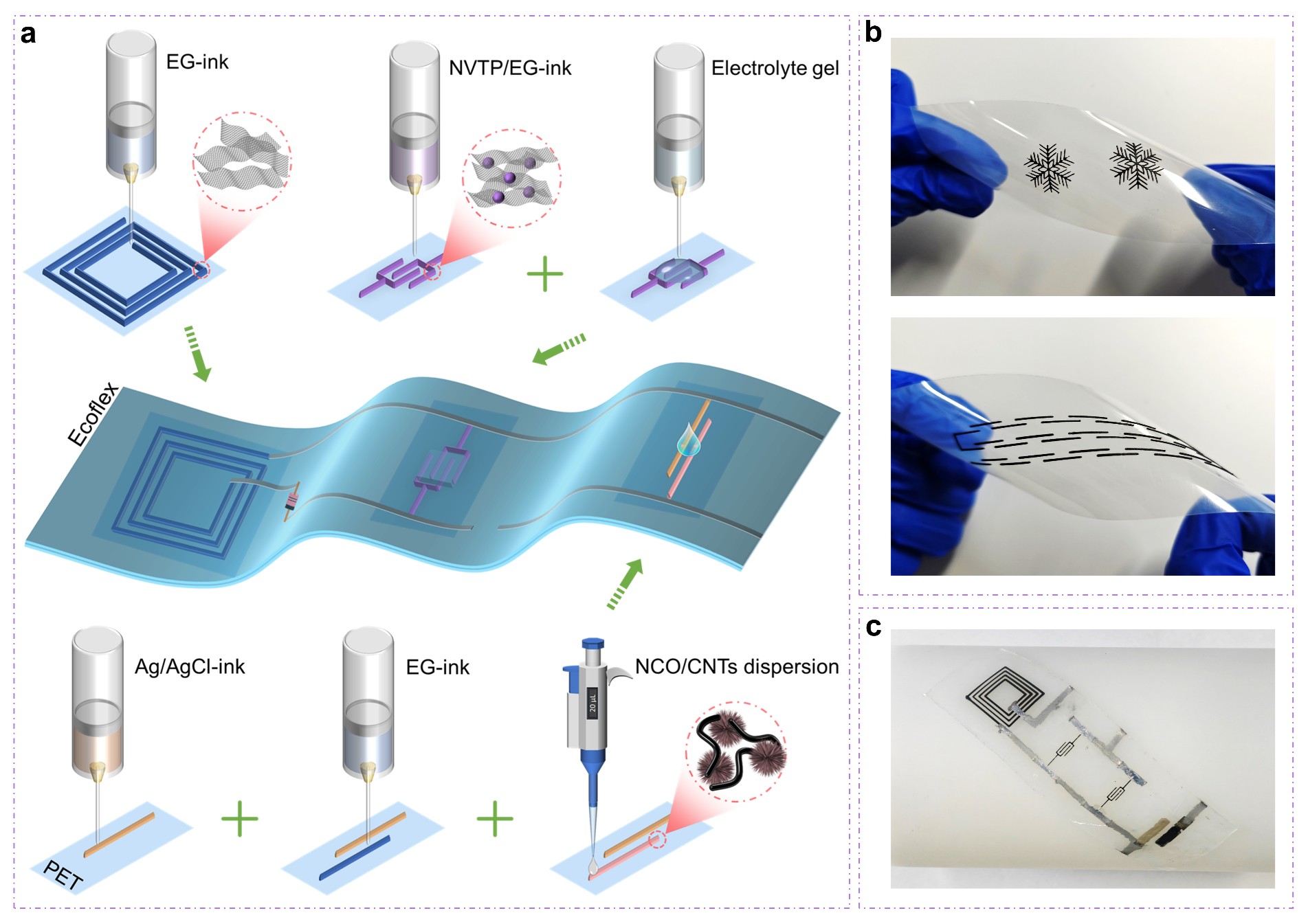Z.H. Ren, X.Y. Shi *, E.D. Yang, L.X. Ni, Z.B. Guo, B. Li, Y. Wu, Y.X. Ma, J.W. Sun, Y.Y. Liu, J.X. Ma, X. Wang, F. Zhou, F.Y. Hu, L. Feng, Q. Shi and Z.-S. Wu *
National Science Review, 2025, accepted.

The emerging development of energy storage integrated microsystems plays a pivotal role in advancing flexible and wearable electronics, yet their compatible construction and stretching robustness remain unsolved. Herein, we report all three-dimensional (3D) printing construction of a stretchable modular integrated microsystem, composed of wireless receiving coils, aqueous sodium ion micro-batteries (ASMBs) and glucose sensors. A versatile binder-free graphene-based ink is developed to largely reduce the construction complexity and boost the compatibility between multiple modules. The resulting 3D-printed ASMBs exhibit high areal capacity of 0.96 mAh cm−2, favorable stability in 1500 cycles and integration uniformity, profited from the elaborately designed microelectrodes with fast electron/ion transfer pathways. By charging in contactless mode, our ASMBs can efficiently drive a sensor to realize highly sensitive detection to glucose concentration as low as 0.5 mM. When encapsulated with Ecoflex elastomer and connected with liquid metal, the microsystems maintain invariable operation after thousands of stretching deformation in 50% tensile strain. Our proposed strategy of all 3D-printing microfabrication and structure design paves a path for developing highly flexible and customized integrated microsystems towards wearable electronics.
